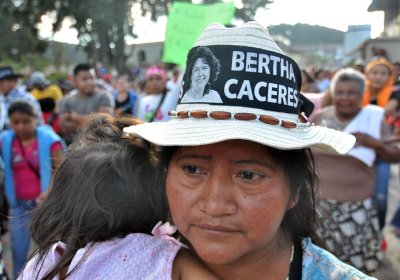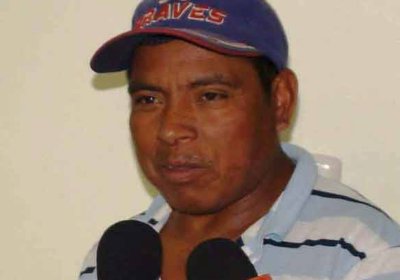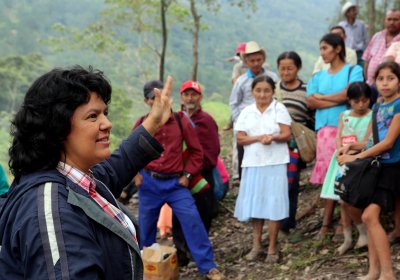Five years have passed since social leader and environmental activist Berta Cáceres was assassinated in her home in La Esperanza, Honduras, reports People's Dispatch.
Berta Caceres
“This is not a conflict over elections. It’s the Honduran people rejecting the policies of plundering, death and violence of the state”, said Berta Zuniga Caceres, the daughter of murdered indigenous rights leader Berta Caceres and coordinator of the Civic Council of People’s and Indigenous Organisations of Honduras (COPINH).
A hydroelectric company that environmental activist Berta Caceres had fought, plotted with Honduran military and security forces to kill the Indigenous leader in March 2016, an independent commission has found.
The investigation was carried out by the International Group of Advisors and Expert Persons (GAIPE), comprised of several lawyers from Guatemala, Colombia, Holland and the United States. Its findings were based on dozens of interviews, court records and partial access to evidence provided by government investigators.
Relatives of Berta Caceres, the iconic Indigenous environmentalist from Honduras who was killed in March last year, denounced on July 26 a "hate campaign" against them.
The environmental activist's family expressed concern about the "most aggressively executed hate campaign" against them after the Dutch Development Bank, FMO and the Finnish Fund for Industrial Cooperation, Finnfund, decided to pull out from the Agua Zarca dam project on the Gualcarque River that flows through the Indigenous territory of the Lenca people.
The killing of Honduran environmental activist Berta Caceres on March 3 last year closely resembles a planned extrajudicial killing by Honduran military forces with links to US-trained special forces, according to newly leaked court documents.
Caceres was a co-founder and coordinator of the Council of Popular and Indigenous Organisations of Honduras (COPINH).
In Honduras, indigenous leader Jose Santos Sevilla has been assassinated by armed gunmen in his home in Montana de la Flor, north of the capital, Democracy Now! said on February 21.
Santos Sevilla was the leader of the indigenous Tolupan people, who are fighting to protect their ancestral lands from industrial mining and logging projects. In 2015, the United Nations special rapporteur on the rights of indigenous peoples warned of rampant violence against Tolupan organisers, including assassinations, as well as state impunity for the perpetrators of these crimes.
More than 100 Honduran and international human rights and social justice groups have thrown their support behind a newly launched independent investigation, led by international legal experts, into the murder of renowned indigenous environmental activist Berta Caceres.
 Banners unfurled by activists in front of the offices of USAID in Washington to protest the agency's support for a controversial dam project on March 14. Photo: Twitter /@the_intercept
Banners unfurled by activists in front of the offices of USAID in Washington to protest the agency's support for a controversial dam project on March 14. Photo: Twitter /@the_intercept






